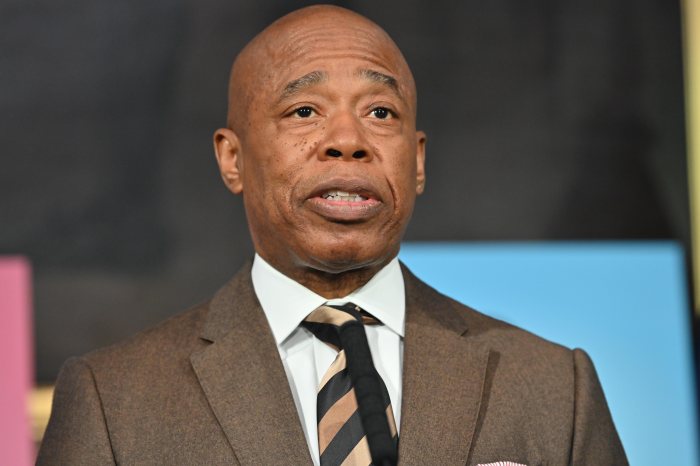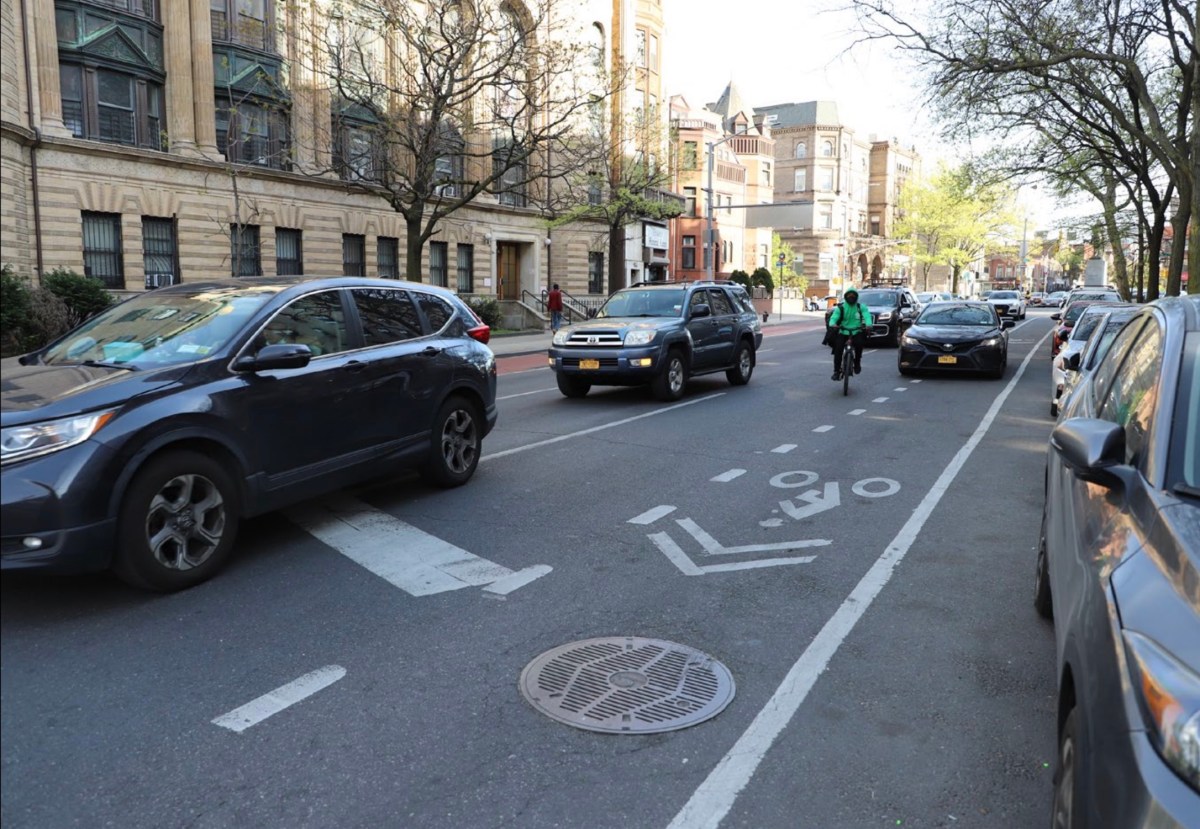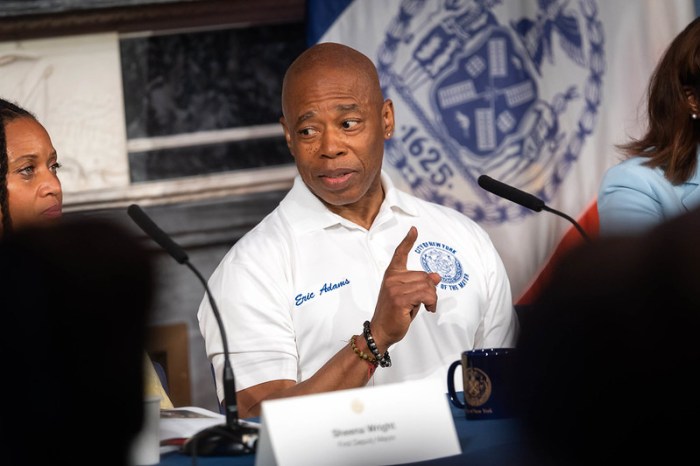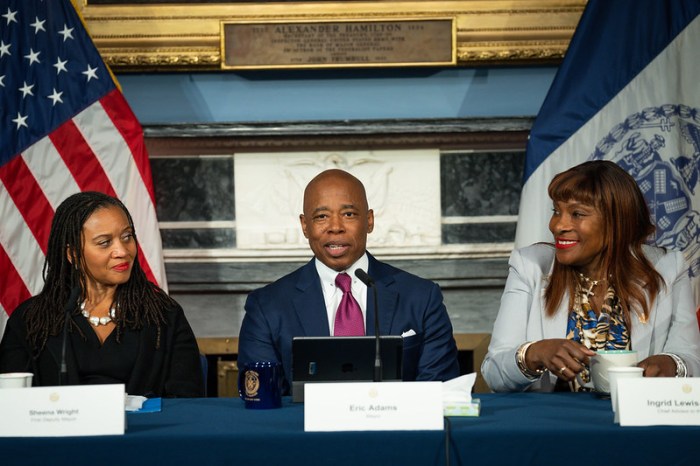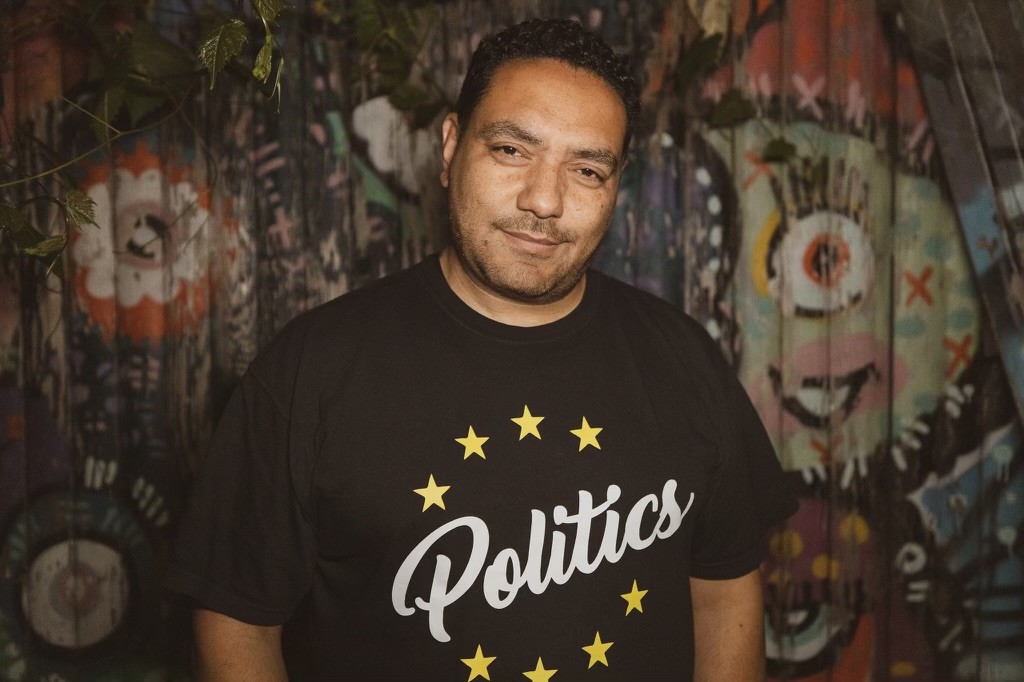Broker fees are set to disappear for most New York City renters, as Mayor Eric Adams said on Tuesday that he would not veto a City Council bill that would make those who hire brokers responsible for paying them.
Hizzoner made the revelation during his weekly wide-ranging press conference, saying that he will not stand in the way of the bill — known as the FARE Act — becoming law. However, the mayor clarified that he still has concerns that the measure would have unintended consequences for tenants and those in the real estate industry, so he may not sign the bill.
If the mayor does not sign or veto a bill within 30 days of it passing, it automatically becomes law.
Adams said he would not veto the FARE Act because it passed the City Council by an overwhelming 42 to 8 supermajority, well over the number of votes needed to override a mayoral veto — making such an effort on Adams’ part futile.
“They have a veto-proof majority, and so I’m not vetoing the bill,” the mayor said. “I don’t want to put New Yorkers through the distress and strife and stories about, ‘Oh, we’re arguing over bills, just for it to be voted into law…’ I’m just not in that space. Just these headlines of dispute. We need to be in a better, calm place. And so I won’t veto the bill. The question is if I’m going to sign it into law.”

The mayor’s decision not to veto the bill is a notable departure from his responses to other pieces of council legislation with which he disagreed.
Last year, he vetoed a bill to expand access to city-funded housing vouchers, and this year, he rejected two pieces of legislation on documenting police stops and banning solitary confinement. But the council overrode his vetoes in all three cases.
Currently, tenants usually bear the responsibility for paying broker fees, even though landlords most often hire listing agents. By requiring those who hire brokers to pay them, the legislation would force property owners to bear the cost of having their apartments listed and shown.
The bill’s proponents say it will remove a major barrier to tenants being able to move into a new apartment, as broker fees, on average, cost 15% of annual rent.
Adams reiterated his concern that to offset the cost of paying for brokers themselves, landlords will raise tenants’ rents to recoup those dollars. His argument, which mirrors that of the real estate industry, is that tenants will have to shell out that higher monthly rent in perpetuity instead of paying a one-time fee.
The mayor added that he has had a “lot of life experience” both as a former real estate agent and as a small landlord. He suggested that supporters of the bill, like its prime sponsor, City Council Member Chi Ossé (D-Brooklyn), who is in his mid-20s, are too young to have the perspective on the legislation that he has.
“Life will determine if I was accurate in my concerns if this goes into the rent of New Yorkers as they pay the rent,” Adams said. “Not only was I a small property owner, but I was a real estate agent. So I know what it is to pass off cost to the owners of buildings.”




